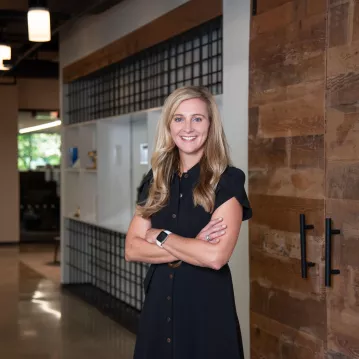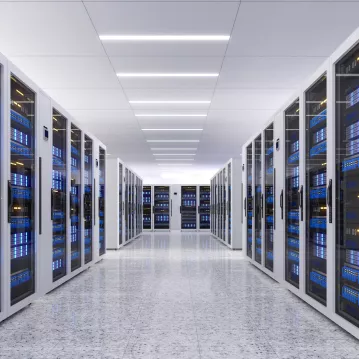Noel Titus: Onward + Upward

The DAVIS logo was created with the onward + upward ethos in mind. It is both our legacy and our vision for the future. We're interviewing 20 people in '20 to find out what onward + upward means to them (along with some other interesting details you might not pick up on at the jobsite). Keep up with this series to get more insight into the DAVIS team!
Meet Noel Titus, Project Manager.
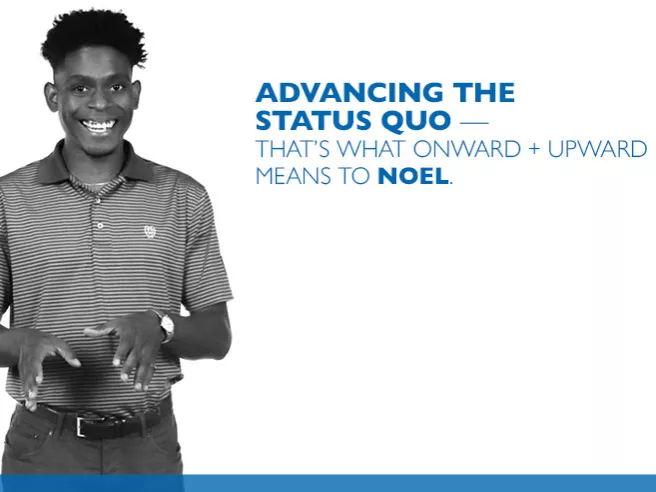
We sat down with Noel (over a phone call) to talk about his career so far at DAVIS, his unique abilities in the field, and what he learned growing up in the Bronx. Keep reading to learn about him.
NOEL'S LIFE AT DAVIS
So, you worked with DAVIS before you worked for DAVIS, right?
Yeah, I worked at a drywall and masonry subcontractor previously, and I worked on the Plaza West apartments, which was a DAVIS job. So, I got to see the way that DAVIS operates. The "family" atmosphere was coming across even to us as subcontractors, which I really liked. Now I'm here!
We're glad to have you on board. What has your time at DAVIS been like so far?
It's been really good. I spent my first year working at the Office of the Attorney General for DC project, and I handled a lot of the day-to-day process. It was immediately evident that the senior management at DAVIS really cares about their employees. The first week I was here, Jim Davis knew my name. My project team has really been looking out for me as well. When people at DAVIS ask you how you're doing, they really want to know how you're doing.
How do you see yourself growing while you're here?
I'm still learning about things I've never experienced before, but the great part about being at a General Contractor is that we have our subcontractor partners to work with, and there are people I can ask for help on specific things. That's invaluable to me. I do have more room to grow, and I really want to expand my knowledge base when it comes to interiors. My goal is to be a Senior Project Manager working on multiple jobs.
What kind of approach do you take to managing projects?
It's very structured--any approach has to be organized. You need to be able to figure out what items are priorities, because you're inevitably going to have seven dumpster fires, and you're going to have to figure out which one is the hottest. That's part of construction and part of keeping our clients happy.
2020 has been a challenging year. What is your takeaway from it?
Material deliveries have certainly been challenging. But, my bigger takeaway from it, is how we've demonstrated that our work can be done in a way that's safe. You just have to have a serious commitment to making it work.
The protests and civil unrest situations that have been going on have been a little more heavy-weighing on my mind. My superintendent took some time to talk to me and see how I was feeling, and I appreciated that communication in regards to something that's an issue in construction, and any industry.
How did you get into construction in the first place?
My dad is a civil engineer in Jamaica. We would be driving around and my mom would point out different work my dad had done--she'd say "Your dad did that heavy civil, and dredging for that bridge over there." So, I think I always had that mindset. I went to Carnegie Mellon in Pittsburgh for engineering, and the only thing that interested me was civil engineering, and I decided being a Project Manager was something I would be interested in.
Truthfully, the other side of the coin is, that construction is an environment where you have two sides: the office and the field. Increasingly the office is staffed with people who have degrees from high-powered institutions, and the manpower in the field is made up of people who have been hanging drywall since they were 16. So, the other reason I really like construction is because I feel that I bridge that gap between people who interpret engineering calculations, our architects at the top of the glass office, and the normal everyday Joe, because of my upbringing, growing up in the Bronx. I've always found a way to connect to people in the field fairly effectively.
GETTING TO KNOW NOEL
What was it like growing up in the Bronx?
So, I was born in Jamaica, then moved to the Bronx with my mom when I was 6. It gave me an idea of what some people's lives are like. In Jamaica, I saw abject poverty. The Bronx was different, but it still wasn't an awesome situation. Growing up there definitely cemented the way that I feel about diversity and inclusion. The various atmospheres I grew up in gave me a worldview that I think is well developed, and that's one of the best things I bring to the table, in terms of getting along with people.
Did you have any interesting jobs growing up?
I worked at a clothing store called Rainbow--I worked in the women's shoe department, actually. After 8 or 9 hours of standing on your feet, you finally get on the bus to go home and you feel like your legs are just made of Jell-O! After that, I knew I had to get a job where I could sit at a desk for a certain amount of time.
If you weren't in construction, what do you think you would be doing?
Probably a high school math teacher. I'm an Eagle Scout, so I spent a lot of time teaching kids how to build fires and camp. A year ago I spent a year with a group called North Star Tutoring, and I tutored an 8th grader in math. His name was Milton, and he did improve a good amount from where he first started!
What's something people don't know about you?
I ran track in college all four years--Division III, but we did run track. In my junior year, I had the team over at my house for dinner the night before our indoor championship meet, and we made a big pot of spaghetti. Long story short, a third of our team got the stomach flu, because my roommate had it. But, we still won! People were throwing shot put and immediately running to the garbage can to puke. I felt so bad, like I sabotaged the whole team--and then we won.
One last question - what does Onward + Upward mean to you?
I think about how I'm always my own biggest critic, and I'm always aiming to do better than I've done prior. So to me, it means advancing the status quo, and looking beyond what we've done. I always want to be the best that I can be, and if everyone's keeping that mantra in mind, we can be the best company we can be.
Recommended Reads
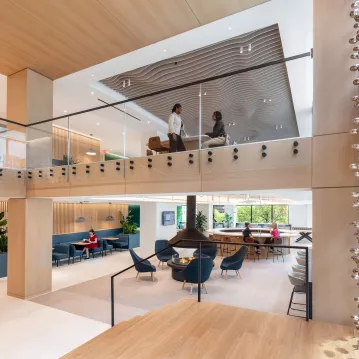
Q1+Q2 2025 | Market Report
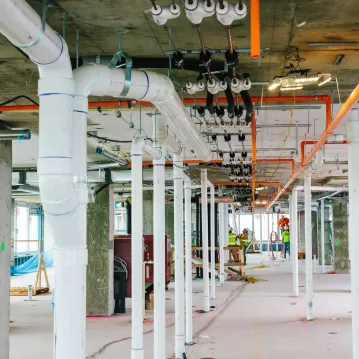
State of the Market Report
